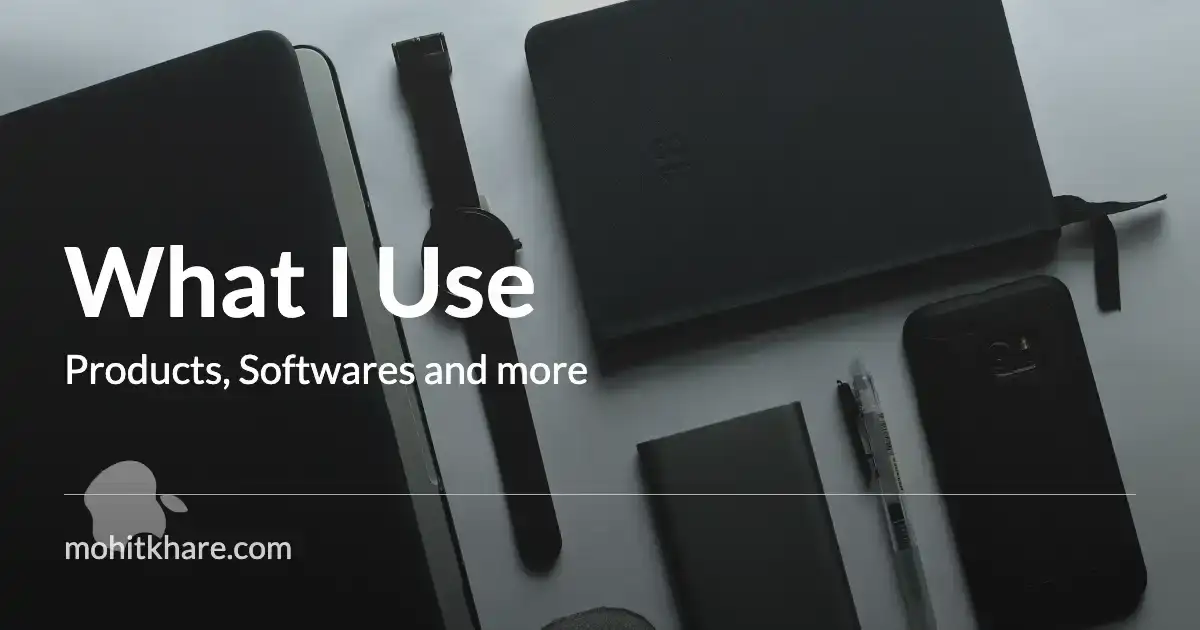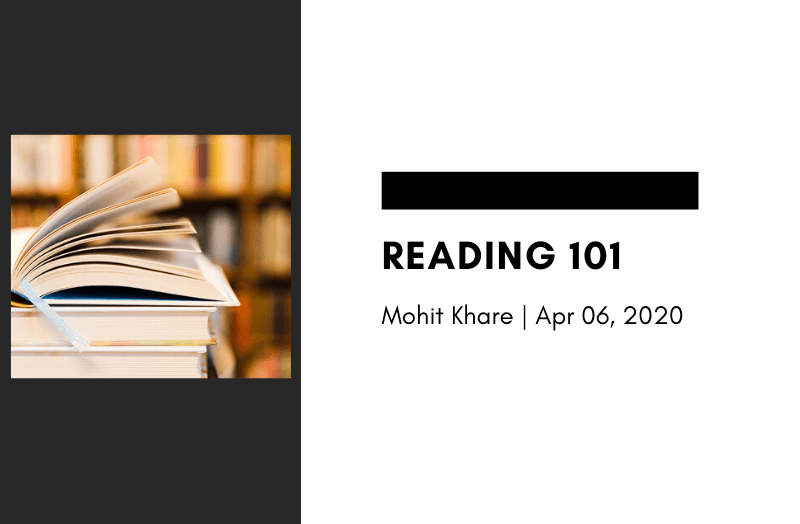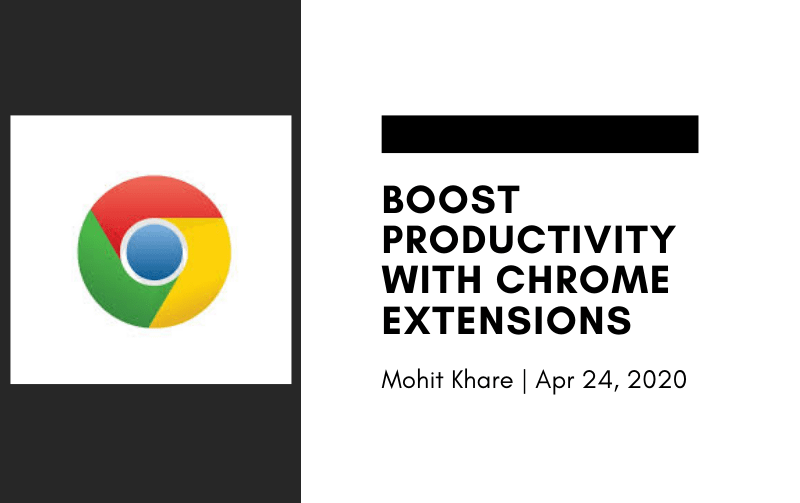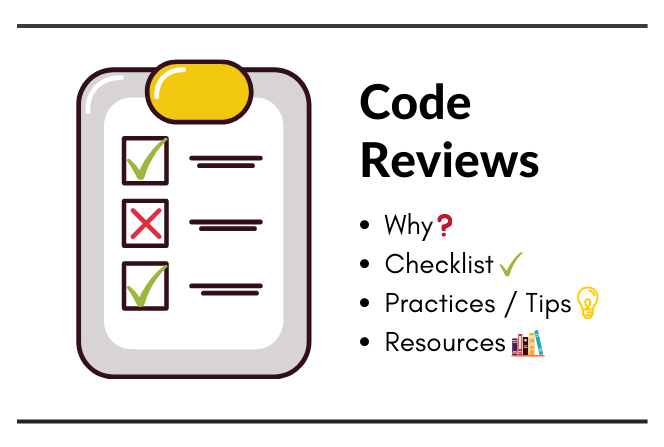Personal OKRs for Success
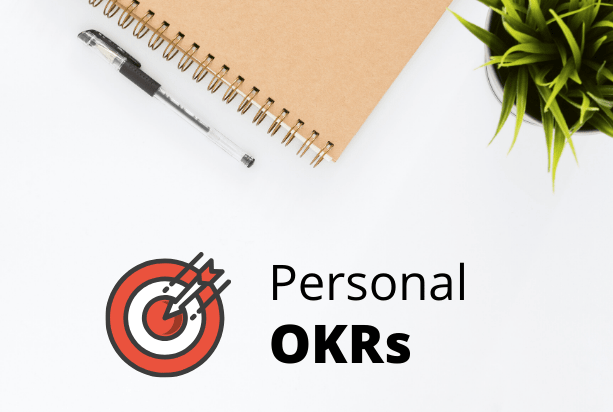
Get latest articles directly in your inbox
Last year as I kicked off my career entering the professional tech world, I came across the concept of Objective, Key and Results (OKRs) at work. I was quite intrigued by the whole concept of OKRs.
In very layman terms —
Main objective of OKR is to plan out qualitative goals with quantitative results for those with proper time tracking.
People do use diary or todo apps for tracking there work. Todo apps usually work for tracking tasks over a shorter duration. You need a framework to plan out for your bigger goal and track your progress towards it.
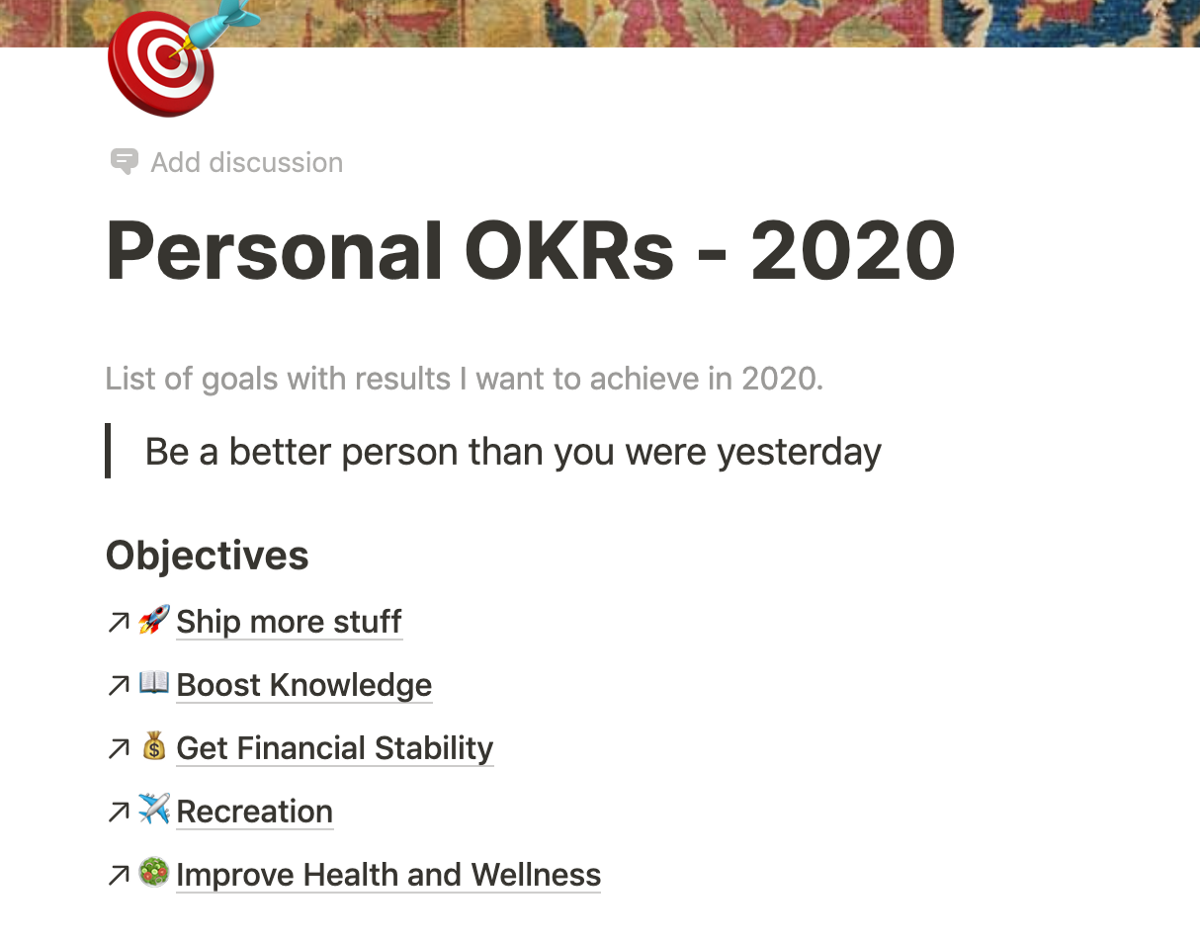
In this blog, I will try to explain how you can plan and why it is important to have your Personal OKR. Let’s begin!
What?
OKRs is already a very popular term in business, most probably it is being used at your workplace too. It is a goal-setting framework that basically covers big and challenging goals with a set of defined measurable results for achieving these goals.
Objective —
- What do you want to achieve over a period of time?
- Objectives should be ambitious, more inspirational (which requires more effort of yours), bold and qualitative
- Your targets should not be something very easily achievable.
Eg. Improve the financial condition, Get better at reading, etc
Key Results
- KRs are steps you need to achieve the objective.
- KRs should be Quantitative i.e having defined metrics! This should not be vague. Add numbers, avoid terms like “more/less”.
Google uses. a scale of 0–1 for tracking progress for each key result. - Make KRs Time-bounded. This helps you tracking progress over the period and lets you recalibrate your tasks.
- KRs should be Binary i.e Complete / Incomplete
Eg. Read 3 books on investing, Read 1500 pages monthly, etc
Personal vs Work OKRs?
OKRs are used by both teams and individuals, though mostly in work environments. The concept of OKR is simple and works pretty effectively for personal use as well. It is super important to have separate personal and work OKRs since your work goals are different from personal life and goals.
In personal OKRs, you would want to track things like —
- Family time
- Personal finance
- Fitness
- Hobbies
Personal OKRs are literally personal!
It varies from person to person. It’s good to look for ideas on how people use OKRs, but you should align it for your goals and aspirations which you want to achieve.
Why?
“Actions — and data — speak louder than words.” ― John Doerr Measure What Matters
OKRs help you plan your goals in a structured and planned fashion, but there is more to it! Let me explain —
- Better Focus and Alignment on what you want to achieve. Since OKRs are limited, you don’t want to waste time and do stuff that doesn’t really help you achieve what you want!
- These give the Motivation to work towards your objectives and a sense of urgency to finish them.
- OKRs help in building a Habit of planning things in general and following the path to achieving them. Eg. You have an objective of getting better at reading, you start reading 30 pages daily. Now, it slowly builds into your habit to read. Next year, even if you don’t have this objective, you’ll still read :)
- Time Tracking is super useful and important since they give a timeline for you to work and align your tasks accordingly.
- Metrics and Numbers help you visualize your progress. When you see 80% completion, you get a psychological motivation to make it 100%
- If you have a Public OKR, you get another source to actually work and complete your task.
‘I’d rather have the objective be to go to Mars, and if we fall short, we’ll get to the moon. This is how you make moonshots. — Larry Page
Measure what matters brings a similar F.A.C.T.S showing the benefits of OKRs.
How?
Now, that you understand the importance of Personal OKRs and are ready to create yours, I’ll show how I personally maintain my OKRs and share resources that might be useful for you!
Tools
There are a lot of tools that you can use to start creating an OKR. I personally being a big fan of Notion, use it to maintain my Personal OKRs. You can use anything from professional notes and trackers like Evernote, Notion, Todoist to simple excel sheet template.
Process

I usually update my OKRs monthly since I maintain a yearly OKR tracker. You can adjust it according to the timeline you are planning for.
I maintain different tables for each of my Objectives. In the image below
Objective — Boost Knowledge
Key Results —
Read 20 books
Create 2 open source projects
Time Tracking —
I maintain time tracking based on which quarter of the year I want this to be completed. I do break these KRs into sub-tasks which are added to my Todolist with a specified timeline.
I use EOY (End of Year) in cases when I want that KR to be worked on throughout the year.
Status—
I set my KRs progress to one of the 5 stages. It helps me keep track of what to do next and what is already completed. I sometimes add At-Risk tag to denote that this KR is probably not happening. I already added At-Risk to my traveling KRs this year credits to corona :(
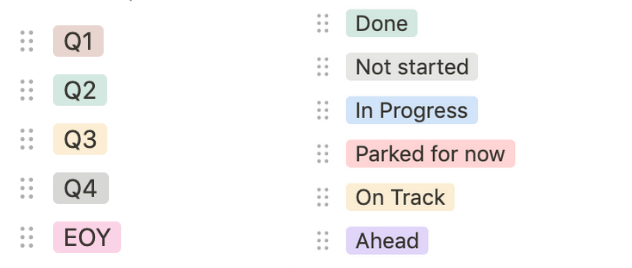
Notes —
These are basically notes/links relevant to KR which I would want to revisit when I come back to this sometime later.
Tips and Tricks
- Avoid changing OKRs! It is okay to update OKRs when you achieve something or want to divert. Do not remove OKRs just because you are doing something else now, at the end of the timeframe you should know that you failed at this due to XYZ reason, and was it worth it or not?
- You will fail in many Key results! It is okay to fail, now you get an idea on what did you miss, how can you improve and rework accordingly.
- Regularly update your KRs status and notes, this gives you an idea of where you need to focus more in the next few days. A biweekly or monthly review is generally a good time to revisit OKRs. I set up a biweekly reminder in my calendar for this!
- You can add a score to each KR to make things more interesting. For the first time, I wanted to keep it simple. Do share if you use some interesting scoring :P
- Avoid setting too many OKRs instead make the OKRs more challenging.
- Add links to your weekly tasks in notes sections. This helps you view how did you spend your week in the perspective of achieving your OKR results. Even add resources for specific KRs. This helps you increase your knowledge base over a period of time.
- Keep it simple! Follow what you can maintain. Don’t overcomplicate :)
Resources
- Wide-set of OKR examples — https://www.whatmatters.com/get-examples/
- Complete Guide — https://rework.withgoogle.com/guides/set-goals-with-okrs/steps/introduction/
- How Google uses OKR — https://www.youtube.com/watch?v=mJB83EZtAjc
- http://eleganthack.com/the-art-of-the-okr/
- Book — Measure What Matters
share how you maintain and keep track of your goals! But remember —
“Ideas are easy. Execution is everything.” — John Doerr
Liked the article? Consider supporting me ☕️
I hope you learned something new. Feel free to suggest improvements ✔️
I share regular updates and resources on Twitter. Let’s connect!
Keep exploring 🔎 Keep learning 🚀
Liked the content? Do support :)


